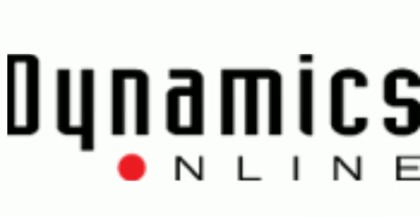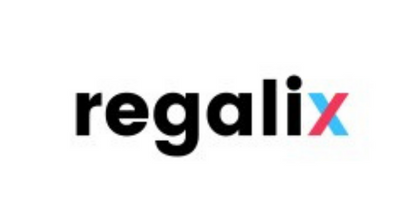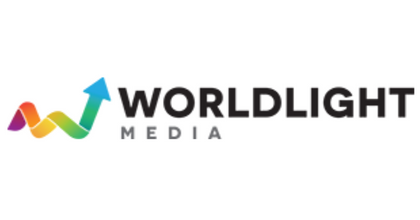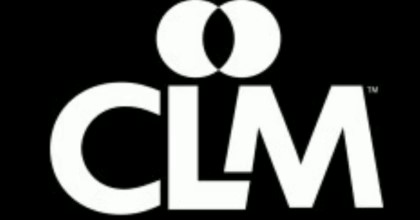
Top Manufacturing Software Development Companies
Welcome to our comprehensive guide to the top Manufacturing Software Development Companies! In today’s fast-paced manufacturing landscape, technology serves as a cornerstone for driving efficiency, innovation, and growth. Our curated list showcases the leading companies specializing in crafting cutting-edge software solutions tailored specifically for the manufacturing industry. From production management systems and supply chain optimization software to quality control platforms and predictive maintenance tools, these companies offer a diverse array of products and services to meet the unique needs of manufacturers worldwide. With detailed reviews and insights, we empower you to make informed decisions and select the perfect partner for your manufacturing software requirements.
List of the Best Manufacturing Software Development Companies

-
Employees: 11 to 50
-
Min. Project amount: $25000
-
Country: U.S.A
Blue Noda
-
Employees: 11 to 50
-
Min. Project amount: $25000
-
Country: U.S.A
-
Employees: 11 to 50
-
Min. Project amount: $25000
-
Country: U.S.A

Dynamics Online
-
Employees: 2 to 10
-
Min. Project amount: $25000
-
Country: U.S.A

DIG Marketing
-
Employees: 11 to 50
-
Min. Project amount: $25000
-
Country: U.S.A

OMG Marketing
-
Min. Project amount: $25000
-
Country: U.S.A

Regalix
-
Employees: 1,001 to 5,000
-
Min. Project amount: $25000
-
Country: U.S.A

SocialHi5
-
Employees: 11 to 50
-
Min. Project amount: $25000
-
Country: U.S.A

Fishbowl Design
-
Employees: 2 to 10
-
Min. Project amount: $25000
-
Country: U.S.A

WorldLight Media
-
Employees: 2 to 10
-
Min. Project amount: $25000
-
Country: U.S.A
** Buyer's Guide **
- 1. What types of manufacturing software solutions do these companies offer?
- 2. Can manufacturing software solutions be customized to fit the unique needs of my manufacturing facility?
- 3. How user-friendly are the manufacturing software solutions for operators and management personnel?
- 4. Can manufacturing software solutions integrate with existing systems and equipment used in my facility?
1.What types of manufacturing software solutions do these companies offer?
Top manufacturing software development companies offer a range of solutions tailored to the manufacturing industry, including production management systems, supply chain optimization software, inventory management solutions, quality control platforms, and predictive maintenance tools.
Manufacturing software development companies understand the complexities of modern production processes. They offer a variety of solutions designed to streamline operations, optimize workflows, and empower manufacturers to gain a competitive edge. Here’s a breakdown of some of the most common manufacturing software solutions:
Optimizing the Production Line: Key Manufacturing Software Solutions
In today’s data-driven manufacturing landscape, software plays a crucial role in optimizing every stage of the production process. Here are some of the core solutions that can transform your manufacturing operations:
Production Management Systems (MES): These comprehensive solutions serve as the central nervous system of your manufacturing operations. MES software tracks production processes in real-time, manages schedules, monitors resource allocation (labor, materials, machinery), and facilitates communication across departments.
Supply Chain Optimization Software: Ensure a smooth flow of materials with dedicated supply chain management software. These solutions track inventory levels across your supply chain, identify potential disruptions, optimize purchasing decisions, and streamline logistics for on-time delivery of materials.
Inventory Management Solutions: Gain complete control over your inventory with specialized software. These solutions track raw materials, work-in-progress (WIP), and finished goods, optimize storage space, minimize stockouts, and prevent overstocking, reducing carrying costs.
Quality Control Platforms: Maintain consistent product quality with software-driven quality control measures. These solutions can automate inspections, track defects, identify quality trends, and ensure products meet all regulatory standards.
Predictive Maintenance Tools: Prevent equipment failures and costly downtime with predictive maintenance software. These solutions analyze sensor data from machinery to predict potential issues and schedule maintenance proactively, maximizing equipment uptime and production efficiency.
Enterprise Resource Planning (ERP) Systems: While not exclusive to manufacturing, ERP systems offer a comprehensive suite of software modules that integrate various aspects of a manufacturing business, including production, inventory, finance, human resources, and customer relationship management (CRM).
Computer-Aided Design (CAD) Software: Though not strictly software development, CAD software plays a vital role in the product design phase of manufacturing. It allows engineers to create digital models of products, facilitating collaboration, design iterations, and ensuring manufacturability.
Manufacturing Execution Systems (MES): These solutions provide real-time data on production processes, enabling informed decision-making, optimizing resource allocation, and ensuring adherence to production schedules.
Product Lifecycle Management (PLM) Software: PLM software manages the entire lifecycle of a product, from initial concept and design to production, deployment, and end-of-life processes. This streamlines product development, improves collaboration across departments, and facilitates regulatory compliance.
Choosing the Right Solutions:
The specific software solutions you’ll need depend on the size and complexity of your manufacturing operation, the type of products you manufacture, and your specific production challenges. Consider factors like scalability, ease of use, integration capabilities with existing systems, and the company’s experience within your manufacturing niche.
2.Can manufacturing software solutions be customized to fit the unique needs of my manufacturing facility?
Yes, reputable manufacturing software development companies understand that each manufacturing facility has unique requirements. They typically offer customizable solutions that can be tailored to align with specific workflows, processes, and objectives.
In the fast-paced world of manufacturing, a one-size-fits-all approach just won’t cut it. Leading manufacturing software development companies understand this and offer highly customizable solutions to perfectly fit the unique needs of your manufacturing facility. Here’s how customization empowers you:
Tailor-Made Solutions: Customizing Manufacturing Software for Your Facility
Off-the-shelf software might seem like a quick fix, but it often lacks the flexibility to address the specific nuances of your production line. Here’s where customization comes in:
Process-Specific Functionalities: Manufacturing processes vary depending on the products you create. Look for software that can be customized to accommodate your specific workflows, quality control procedures, and data collection requirements.
Integration with Existing Systems: Your new software shouldn’t exist in a silo. Reputable companies offer solutions that can seamlessly integrate with your existing Manufacturing Execution Systems (MES), Enterprise Resource Planning (ERP) systems, or other software you rely on, ensuring smooth data flow across your operations.
Scalability and User Access Controls: As your manufacturing facility grows, your software needs to adapt. Opt for customizable solutions that can be scaled up or down based on your production volume and user base. Granular user access controls ensure that different personnel (production floor workers, supervisors, quality control specialists) have access to the functionalities relevant to their roles.
Reporting and Analytics Customization: Gain deeper insights into your operations with customizable reporting and analytics dashboards. Look for software that allows you to tailor reports to track key performance indicators (KPIs) specific to your manufacturing processes and identify areas for improvement.
Compliance Considerations: The software should be customizable to adhere to relevant industry regulations and quality standards. Look for companies that offer solutions that can be configured to meet your specific compliance requirements.
Benefits of Customization:
Optimized Production Processes: A tailored solution streamlines workflows, improves efficiency, and allows you to optimize production processes for maximum output and quality.
Reduced Costs: Customization helps you avoid paying for unnecessary features and ensures you get the functionalities that deliver the most value for your investment.
Enhanced Decision-Making: Customizable reporting and analytics empower you to make data-driven decisions to improve production efficiency, resource allocation, and overall profitability.
Improved User Adoption: When the software aligns with your existing workflows and user needs, staff are more likely to embrace and leverage it effectively.
Competitive Advantage: By customizing software to address your specific challenges and goals, you can gain a competitive edge in the manufacturing industry.
Finding the Perfect Fit:
Discuss Customization Needs: When evaluating manufacturing software development companies, clearly communicate your specific needs, production processes, and desired functionalities. Discuss your customization requirements to ensure the company can tailor the solution to your unique environment.
Request Feature Demonstrations: Reputable companies will showcase how their software can be customized to meet your needs. Look for demos that highlight functionalities relevant to your specific manufacturing processes and how they can be adapted to fit your workflow.
Industry Experience and Client Testimonials: Review case studies showcasing how the company has developed customized solutions for manufacturing facilities similar to yours. Client testimonials can offer valuable insights into the customization process, the software’s impact on their operations, and the overall client experience.
By partnering with a company that prioritizes customization, you can ensure your manufacturing software solution seamlessly integrates with your existing infrastructure, optimizes your workflows, empowers your team, and ultimately propels your manufacturing facility towards greater efficiency and success.
3.How user-friendly are the manufacturing software solutions for operators and management personnel?
The best manufacturing software solutions are designed with usability in mind, featuring intuitive interfaces that are easy for both operators and management personnel to navigate. Look for companies that prioritize user experience and provide training resources to ensure smooth adoption.
User-friendliness is paramount in manufacturing software, catering to both production floor operators who may not be tech-savvy and management personnel who need to analyze complex data. Here’s how leading developers ensure their solutions are user-friendly for everyone involved:
Bridging the User Gap: Making Manufacturing Software Easy for All
Manufacturing software shouldn’t be a hurdle. Leading developers focus on user-friendly design for both operators and management personnel:
For Operators:
Clean and Intuitive Interfaces: Shop floor interfaces should be clear, uncluttered, and easy to navigate. Operators should be able to access production instructions, track work progress, and report issues with minimal training. Touchscreen interfaces can be particularly helpful for data entry on the production floor.
Minimal Training Requirements: Ideally, the software should be intuitive enough to learn quickly with minimal training. Look for solutions that offer clear in-context tutorials and readily available job aids to guide operators through their tasks.
Context-Sensitive Help: Real-time guidance is crucial in a fast-paced environment. Software can provide context-sensitive help features that offer relevant tips and troubleshooting steps based on the specific task an operator is trying to accomplish.
For Management Personnel:
Role-Based Dashboards: Dashboards tailored to specific roles (production supervisor, quality control manager, plant manager) can prioritize the most relevant information and functionalities for each user.
Data Visualization Tools: Complex manufacturing data is best understood visually. Look for software that offers charts, graphs, and other data visualization tools to empower informed decision-making.
Drill-Down Capabilities: Management personnel need to be able to delve deeper into specific data points. Ensure the software allows for easy drill-down capabilities to access detailed information behind the visualizations presented on dashboards.
Reporting and Analytics Tools: Generate customized reports and conduct in-depth analyses to identify trends, optimize production processes, and track performance metrics.
Benefits of User-Friendly Manufacturing Software:
Increased User Adoption: Easy-to-use software ensures higher adoption rates among operators and management personnel, maximizing the software’s value.
Improved Efficiency: Intuitive interfaces and streamlined workflows empower users to complete tasks quickly and efficiently, minimizing errors and production delays.
Enhanced Communication: User-friendly interfaces facilitate communication and collaboration between operators and management personnel, ensuring everyone is on the same page.
Reduced Training Costs: Intuitive design and readily available resources can minimize the need for ongoing training, reducing costs for manufacturing facilities.
Empowered Decision-Making: Management personnel with user-friendly access to data and analytics can make informed decisions to optimize production processes, resource allocation, and overall profitability.
Finding the Perfect Fit:
Request Demos and Free Trials: Many companies offer free trials or demo sessions to allow operators and management personnel to experience the software firsthand and assess its user-friendliness. Look for demos that showcase functionalities relevant to each user group.
User Reviews and Ratings: Read online reviews and ratings to gain insights from existing users about the software’s ease of use, both for operators and management personnel.
By prioritizing user-friendly design, comprehensive training resources, and ongoing support, leading manufacturing software development companies ensure their solutions empower both operators and management personnel to leverage the software’s functionalities effectively, streamline processes, and contribute to the overall success of the manufacturing facility.
4.Can manufacturing software solutions integrate with existing systems and equipment used in my facility?
Yes, top manufacturing software development companies offer solutions that are designed to integrate seamlessly with existing systems, such as ERP systems, MES software, and machinery. Integration capabilities ensure data consistency and efficiency across the manufacturing process.
Integration is crucial for modern manufacturing software solutions. They should seamlessly connect with the technological ecosystem of your manufacturing facility, including existing systems and equipment:
Building a Cohesive Tech Stack: Seamless Integration for Manufacturing Success
No manufacturing facility operates in isolation. Leading manufacturing software development companies understand this and design their solutions to integrate harmoniously with your existing systems and equipment:
Enterprise Resource Planning (ERP) Systems: Ensure your new software integrates with your existing ERP system. This fosters two-way data flow, eliminating duplicate data entry and providing a holistic view of inventory levels, production schedules, and financial data across your entire operation.
Manufacturing Execution Systems (MES): For facilities that utilize MES software, seamless integration is essential. This allows for real-time data exchange between the shop floor and the MES, providing better visibility into production processes, resource allocation, and overall equipment effectiveness (OEE).
Computerized Numerical Control (CNC) Machines and Programmable Logic Controllers (PLCs): Modern manufacturing equipment often relies on CNC machines and PLCs. Integration with your software allows for automated data collection from this equipment, enabling real-time monitoring of machine performance, identification of potential issues, and predictive maintenance strategies.
Warehouse Management Systems (WMS): If your facility has a warehouse, integrate your software with your WMS. This streamlines inventory management, facilitates order fulfillment, and ensures accurate tracking of materials throughout the production process.
Product Lifecycle Management (PLM) Software: For companies with complex products, integrate your software with PLM software. This fosters better collaboration between design and manufacturing teams, ensures efficient production of new products, and streamlines adherence to quality control standards.
Legacy Systems: Some facilities may have older, legacy systems that still play a vital role in their operations. Reputable software development companies can often integrate their solutions with these legacy systems, ensuring data exchange and avoiding the need for costly system replacements.
Benefits of Seamless Integration:
Automated Data Exchange: Eliminate manual data entry between disparate systems, reducing errors and improving data consistency across your operations.
Real-Time Visibility: Gain real-time insights into production processes, inventory levels, and equipment performance, empowering informed decision-making.
Improved Efficiency: Integrated solutions streamline workflows, optimize resource allocation, and minimize production delays.
Reduced Costs: Automation and improved data accuracy can lead to significant cost savings in the long run.
Enhanced Collaboration: Integration fosters better communication and collaboration between different departments within your manufacturing facility.
Finding the Right Integration Fit:
Evaluate API Capabilities: When evaluating manufacturing software development companies, inquire about their application programming interface (API) capabilities. Ensure their solutions offer open APIs that can connect with the specific systems and equipment you utilize in your facility.
Discuss Integration Needs: Clearly communicate your existing systems and equipment landscape to potential software vendors. This allows them to assess your needs and propose solutions that ensure seamless interoperability with your infrastructure.
By prioritizing integration capabilities, you can ensure that your new manufacturing software solution seamlessly connects with your existing systems and equipment. This fosters a unified technological ecosystem that optimizes operations, improves visibility, and empowers your manufacturing facility to achieve its full potential.




